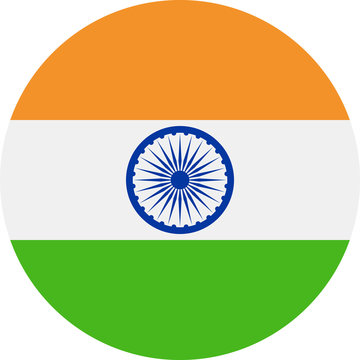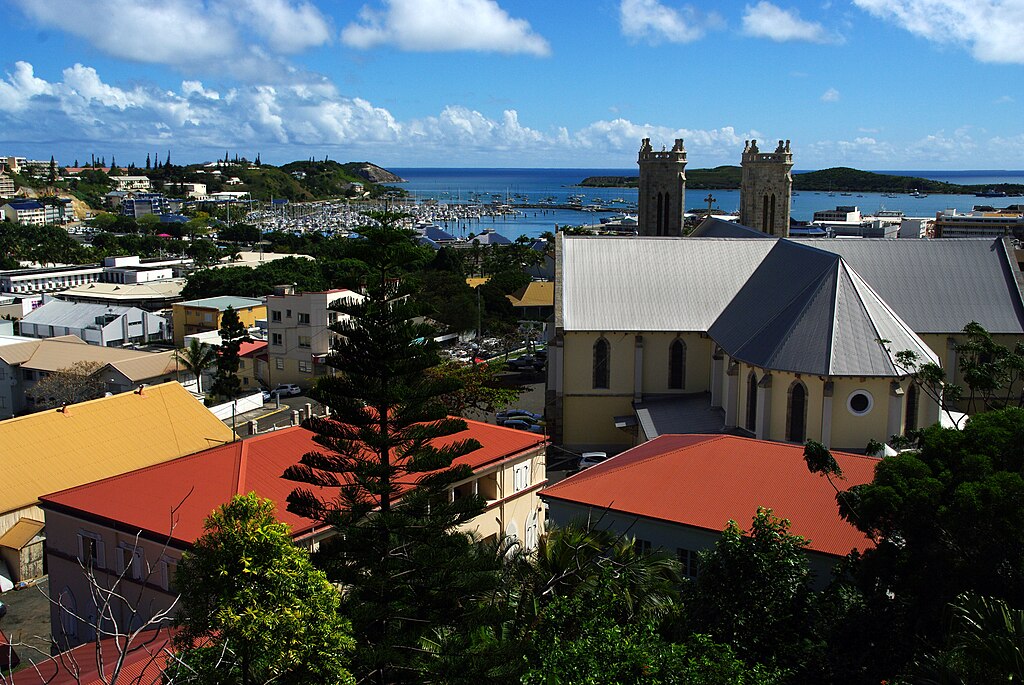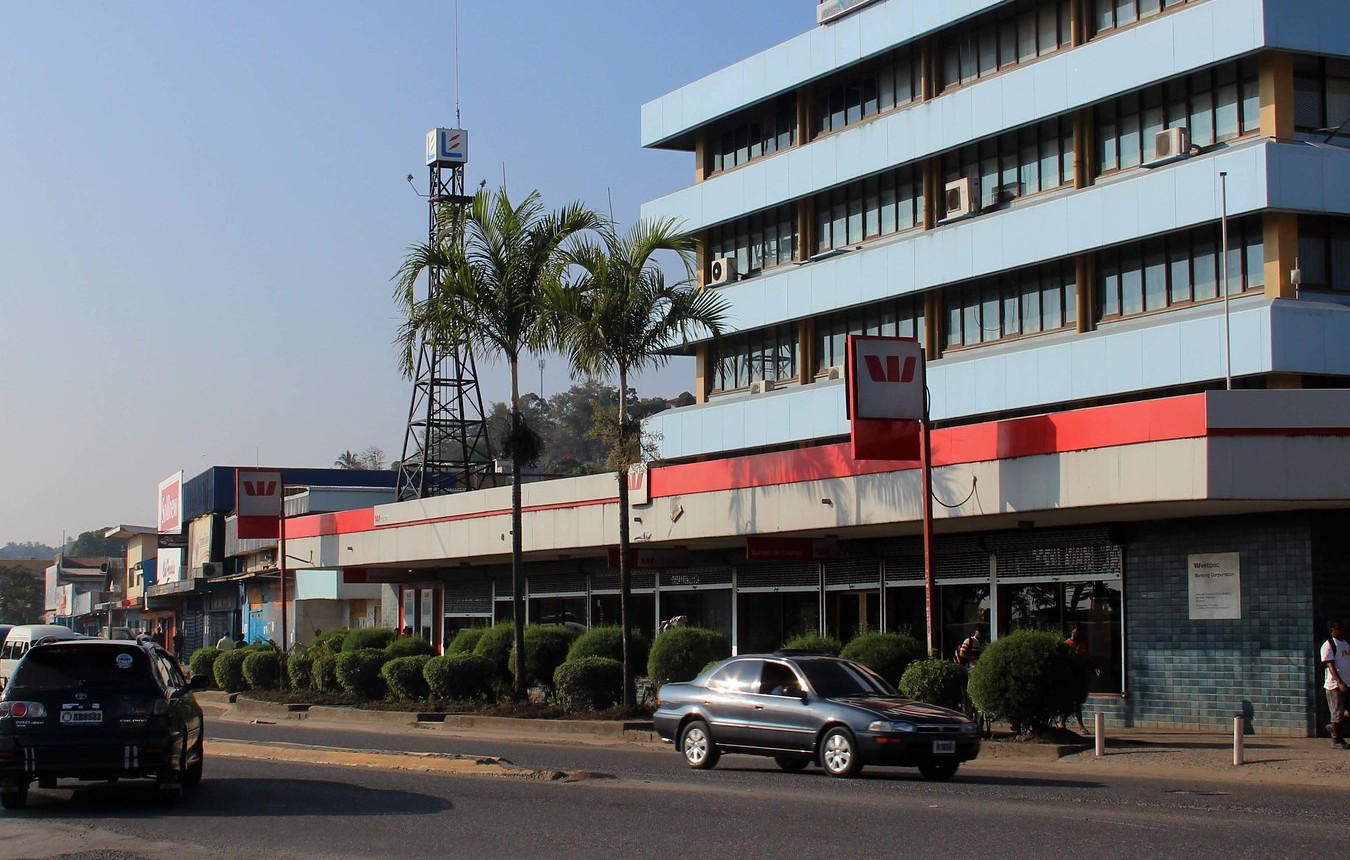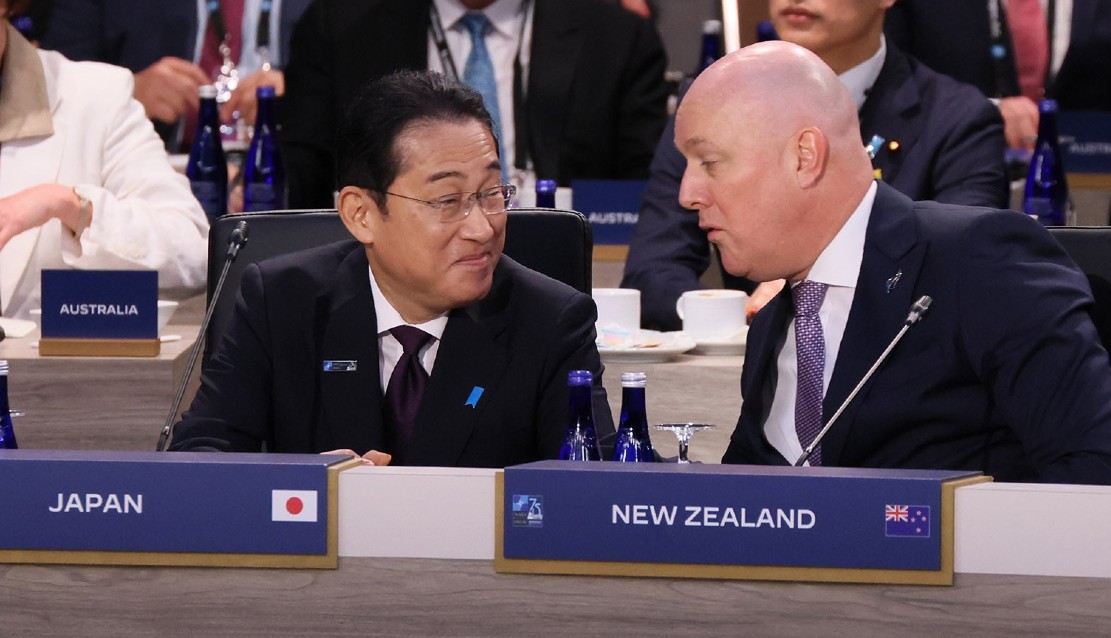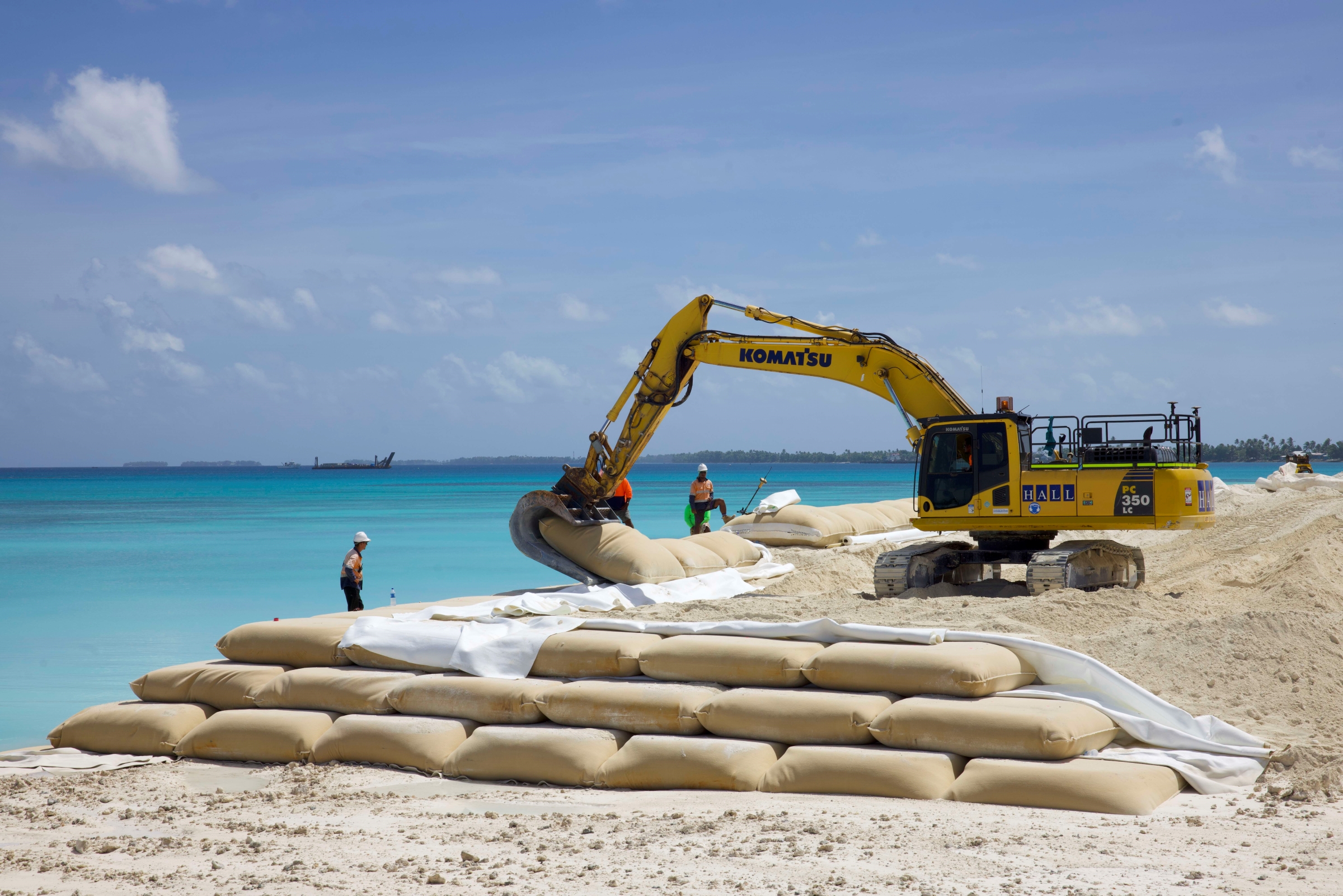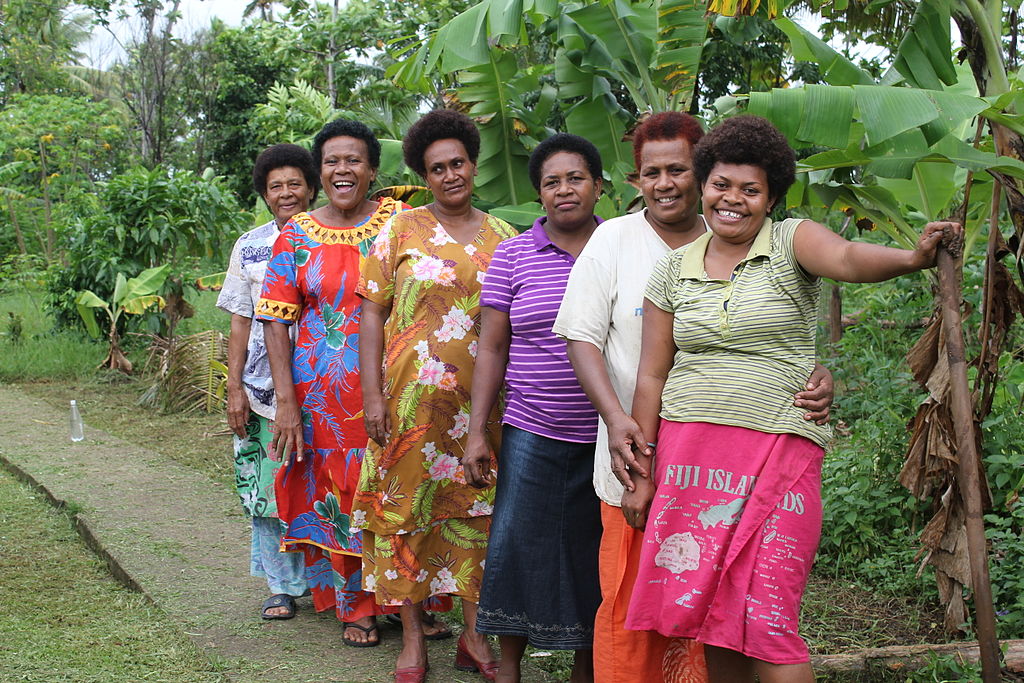Closing the gender gap in the Pacific Islands is an ambitious task, but there are concrete, practical steps that can be taken to accelerate progress.
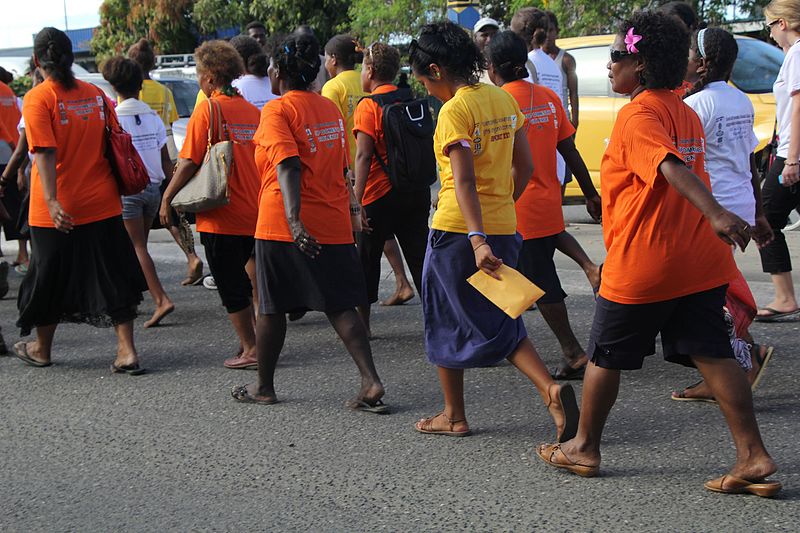 Women in the Solomon Islands, a nation where women’s protections against violence are still limited. : UN Women/Marni Gilbert, Wikimedia Commons CC BY 2.0
Women in the Solomon Islands, a nation where women’s protections against violence are still limited. : UN Women/Marni Gilbert, Wikimedia Commons CC BY 2.0
Closing the gender gap in the Pacific Islands is an ambitious task, but there are concrete, practical steps that can be taken to accelerate progress.
Life for many women in the Pacific Islands is difficult. Outside of Australia and New Zealand, every Pacific Islands Forum member country is below the global average for laws and policy affecting women’s economic opportunities, while laws across the region aren’t doing enough to protect women from violence and harassment.
Gender equality is crucial for economic growth and development in the Pacific, yet structural barriers keep women largely on the sidelines. In the past few decades, progress has been made but issues continue to limit women’s economic participation and shape the region’s labour market landscape.
Pressing challenges remain in relation to women’s employment opportunities, access to childcare to enable better work-life balance and safety concerns both within and outside the workplace.
In fact, none of the members of the Pacific Islands Forum has reached a score of 100 — the highest possible score — in the World Bank’s Women, Business and the Law 2024 index, measuring how laws and policy mechanisms affect women’s economic opportunities.
While New Zealand and Australia score 92.5 and 90 respectively, no other member country scores above the Women, Business and the Law index global average of 64.2.
Fiji has the highest score at 62.5, while Tonga scores the lowest at 40.
Legal barriers remain a significant obstacle to women’s economic opportunities in the Pacific, with outdated laws still limiting their access to certain economic sectors.
Job barriers
For example, women in the Solomon Islands and Vanuatu cannot work at night in the same way as men. Women in Fiji are restricted from working in manufacturing, while women in the Solomon Islands cannot be employed in the mining industry.
Employment opportunities are even more scarce in Papua New Guinea, where women cannot legally work in the mining, construction, manufacturing, transportation, energy and water sectors. As a result, many women work in lower paying jobs or informally, without the protections or benefits granted to those in formal employment.
Beyond occupational segregation, wage inequality also slows down women’s economic empowerment. In addition to Australia and New Zealand, only Kiribati and the Marshall Islands have laws on equal remuneration for women and men for work of equal value.
Lack of childcare
The availability and affordability of childcare is one of the most significant factors affecting women’s economic participation in the Pacific. Access to reliable childcare services remains severely limited across the region, forcing many women to choose between a job and caregiving responsibilities.
The lack of formal childcare arrangements can exclude women from the formal labour market, leading to a loss of potential economic productivity. Centre-based childcare services are only provided by law in five countries — Australia, New Zealand, Palau, Papua New Guinea and Vanuatu.
Australia and New Zealand in particular can serve as models when it comes to implementing childcare legislation.
Both countries provide support for families and childcare providers, while also setting quality standards for centre-based childcare services.
Gender violence
Comprehensive legislation is also essential to protect women from violence, including child marriage, sexual harassment in the workplace, schools, in public and online, and against domestic violence.
While Australia and New Zealand have robust laws on child marriage, sexual harassment, and domestic violence, Fiji and Kiribati are the only other Pacific Island Forum member countries who comprehensively prohibit child marriage.
In the Marshall Islands, for instance, there are no penalties for those who permit, register or officiate such marriages. While all countries set the legal marriage age at 18 or older, many still allow exceptions based on parental consent.
Outside of Australia and New Zealand, only Fiji, Kiribati and Samoa have legislation on sexual harassment in employment, while Fiji is the only member country that protects against sexual harassment in public spaces, schools and educational establishments.
Protections against all forms of domestic violence and sexual harassment is only legislated in Kiribati.
While the Federated States of Micronesia and Palau have domestic violence laws, they lack protections against sexual violence. Similarly, financial or economic violence is not contemplated in the domestic violence legislation in Fiji, Palau, Papua New Guinea, the Solomon Islands and Vanuatu.
Law reform
While reforming unequal laws is the logical first step to close the gender gap, inadequate implementation of laws can further deter the full realisation of women’s access to economic opportunities.
The implementation gap is wide across the globe, and the absence of gender-sensitive policies and mechanisms to ensure the effective implementation of laws contributes to perpetuating gender imbalances.
Globally, the importance of female leadership in government and governance has been proven, and their presence and advocacy in decision-making spaces can create positive change towards gender equality.
With better representation of women in government, pressing gender issues that exacerbate economic inequities and impact all of society negatively can be more directly confronted and addressed.
Only in the last decade has the Pacific seen women represented in the parliament of every national jurisdiction.
Closing the gender gap requires a coordinated effort by all to foster inclusive work environments, create more employment opportunities and advocate for women’s access to economic opportunities.
By addressing the systemic barriers women face, economies can unlock significant productivity gains and build more resilient, equitable societies.
The journey toward gender equality in the Pacific requires not only legal reforms, but also a broader commitment to transforming the attitudes and structures that have long held women back from participating and contributing to their societies on an equitable basis with men, for the benefit of all.
Amanda Ellis is Executive Director, Asia-Pacific at the ASU Global Institute of Sustainability and Innovation. She is previously the Lead Specialist Gender at the World Bank, New Zealand’s Prime Minister’s Special Envoy and inaugural Ambassador for Women and Girls.
Naima Te Maile Fifita (J.D.) is the Executive Director at the Institute for Climate and Peace and Founder of The Moana Tasi Project. She is of Tuvaluan heritage.
With contributions by Natalia Mazoni Silva Martins, Gender and International Development Specialist at the Women, Business and the Law project at the World Bank.
Originally published under Creative Commons by 360info™.


